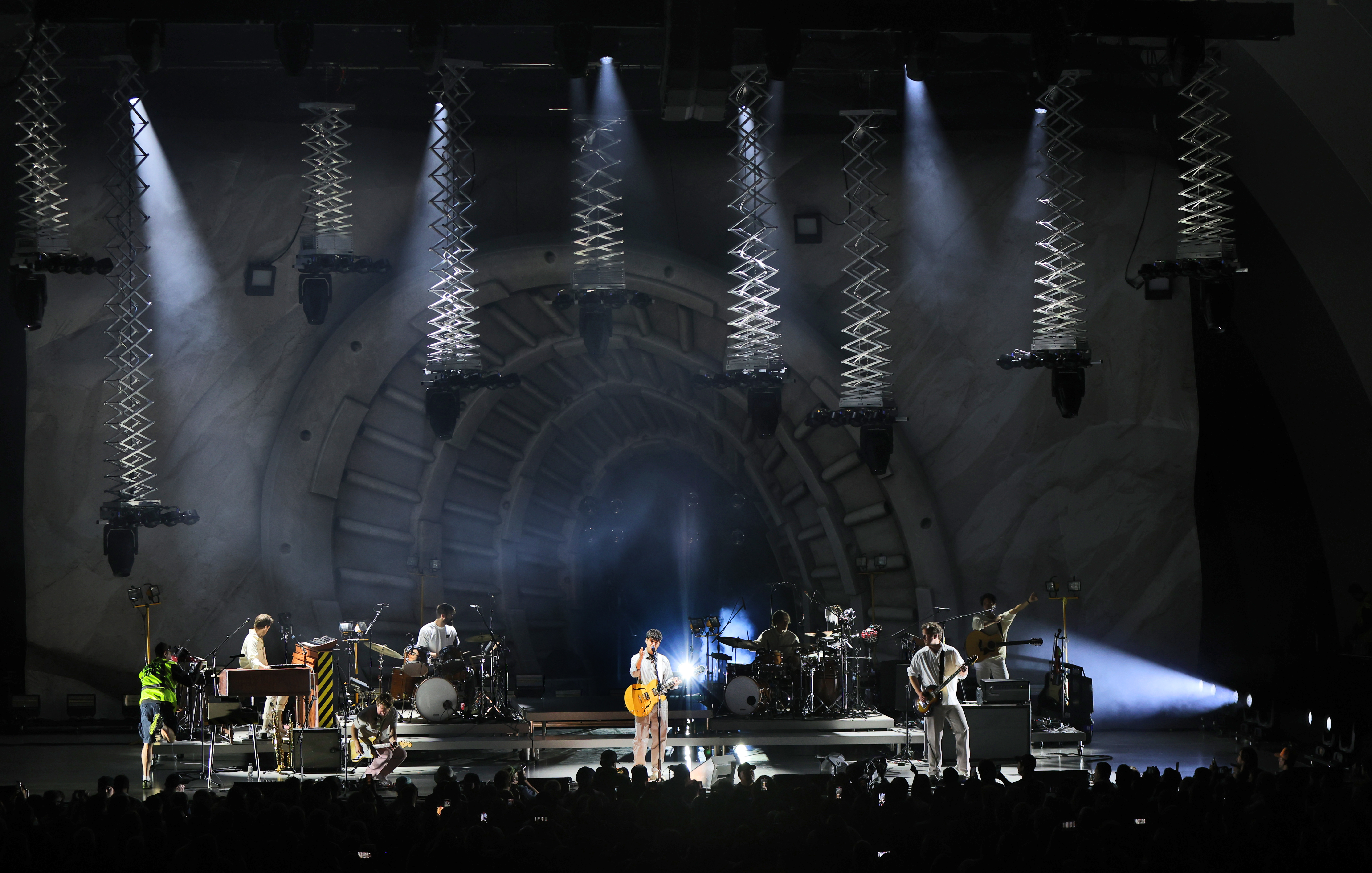
It isn’t a stretch to call Vampire Weekend’s 2019 album, Father Of The Bride, divisive. It is generally acknowledged by both its proponents and detractors that it created something of a schism in the fanbase, but that probably gets subdued by the fact that few would call it a disaster and few prop it up as a high point in the discography. Their claiming of jam music as both inspiration and aspiration was either lauded or shrugged off, obscuring the fact that it was a crucial moment for the band, the record where there was more to prove than ever following the departure of integral collaborator Rostam Batmanglij.
But with the release of this year’s excellent Only God Was Above Us, people’s feelings about Father Of The Bride likely impact how the new album has been approached. Many of the forays into crustier territory have receded, replaced by distorted guitar, raw recordings, and warm songwriting. It’s hard to call something a return to form when the previous album was generally liked by many, but it does feel like something was proved by this latest album. It proved that a Rostam-less Vampire Weekend can’t just succeed by reinventing themselves, they can also succeed by building on the path that culminated with the 2013 masterpiece Modern Vampires Of The City, the album that solidified them as one of the most important and successful indie rock bands of their time.
You probably don’t need me to underscore what side of the fence I fall on (and it’s important to note that even at Uproxx, we have folks holding each opinion, and even people like Steven Hyden who celebrates all sides of the Vampire Weekend dice), but that debate over whether Vampire Weekend “still have it” or whether they “never lost it” became secondary at the Hollywood Bowl last week for a sold out headlining show. Witnessing this incarnation of the band live, the narrative around Vampire Weekend should probably be that they’re a better band than they’ve ever been.
Now, I don’t claim this lightly. I’ve seen the band perform live countless times since their 2008 debut. I saw them at a Long Beach theater for a California tour ahead of Contra. I’ve seen three of their four headline sets at the Hollywood Bowl. I’ve seen them at festivals around the world. But, it wasn’t until this week that I’ve ever been blown away by the sheer magnitude of their sound.

It’s a fitting development considering the project they are touring. Only God Was Above Us is a bit louder, a bit more abrasive, and a bit more aggressive than the band’s previous work, all very much safely calibrated so it very much feels like a Vampire Weekend record. The set on this night seemed designed to fit within that version of the band, underscored by numerous showstopping moments meant to punctuate the performance. It started simply enough, with the three original Vampy Weeks members performing in front of a giant banner with their band name, pushing them right to the front of the stage. It didn’t take a detective to suspect that a banner would drop to reveal something, but that came after a few classic numbers that drew back to their classic sound: “Holiday,” “Cousins,” and “Boston.” But once bandleader Ezra Koenig stood solo for “Ice Cream Piano” only to have the banner fall and reveal an expanded lineup of touring members, a version of their best-sounding self was solidified.
Part of the success of this show rested on the shoulders of touring multi-instrumentalists that could support the songs with strings, woodwinds, and additional percussion — yes, the biggest move of their Father Of The Bride era, a second drummer, remains. Koenig seemed aware of this, taking time away from his usual front-and-center placement to literally shine a light on these supporting players — he carried around a portable LED to illuminate them — during the massive “Mary Boone.”
But it was really Koenig himself who held the show in his hands. There were experiments of Koenig roaming the stage, coming short of “choreography” but definitely exhibiting staged movements that approached something beyond bandleader. There were the decisions to honor the ska support of The English Beat and Voodoo Glow Skulls with reimagined ska versions of “Ottoman,” “Sunflower,” and “Give Up The Gun.” And, most crucially, there was Koenig’s vocal performance, which never shied away from his song’s most difficult vocal heights — see the climax of “Hannah Hunt” or the chorus of “Cape Cod Kwassa Kwassa.” Most of his contemporaries start to sing around the hard parts as they hit middle age, but Koenig sounds better than ever when he bravely hits every note. And in turn, so does his band.
Lastly, it is impressive with how the willing the band is to honor their entire catalog in their live performances. This is something that makes or breaks a band as they approach their legacy era. Balancing the songs that everyone knows, special songs for individual occasions, and unexpected curveballs are indicators of both confidence in their own material and respect for their fandom. Scanning over their tour so far reveals wildly different shows from night to night. That places them among the live greats, the artists that can maintain careers long after their best material is out in the world. But Vampire Weekend are already there, matching the strength of their new material with the best shows of their lives.
